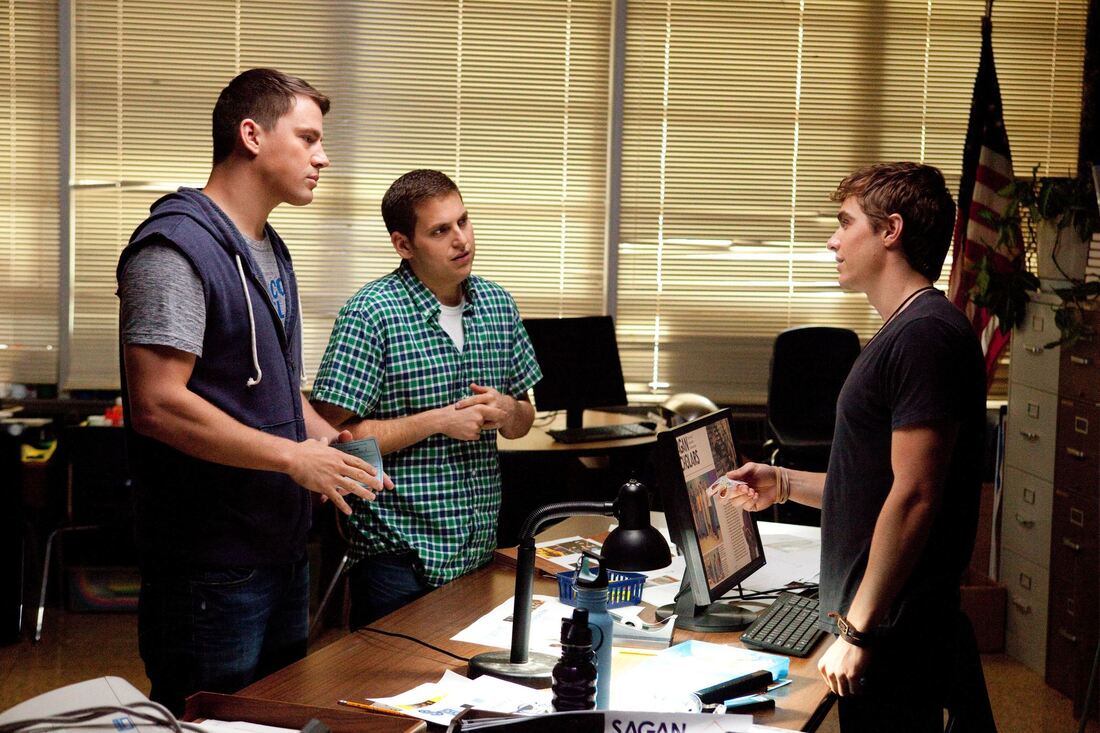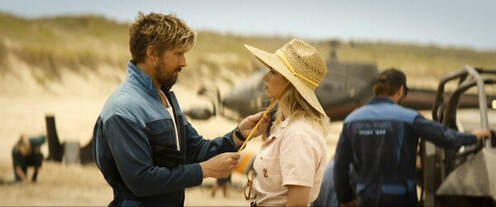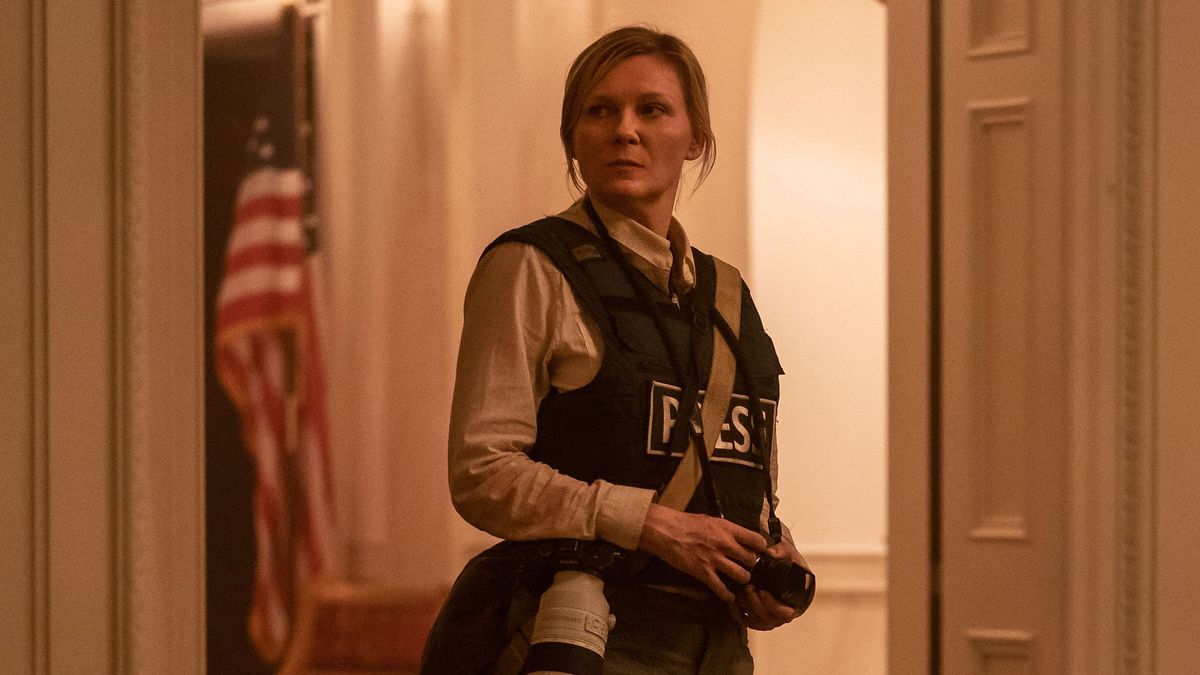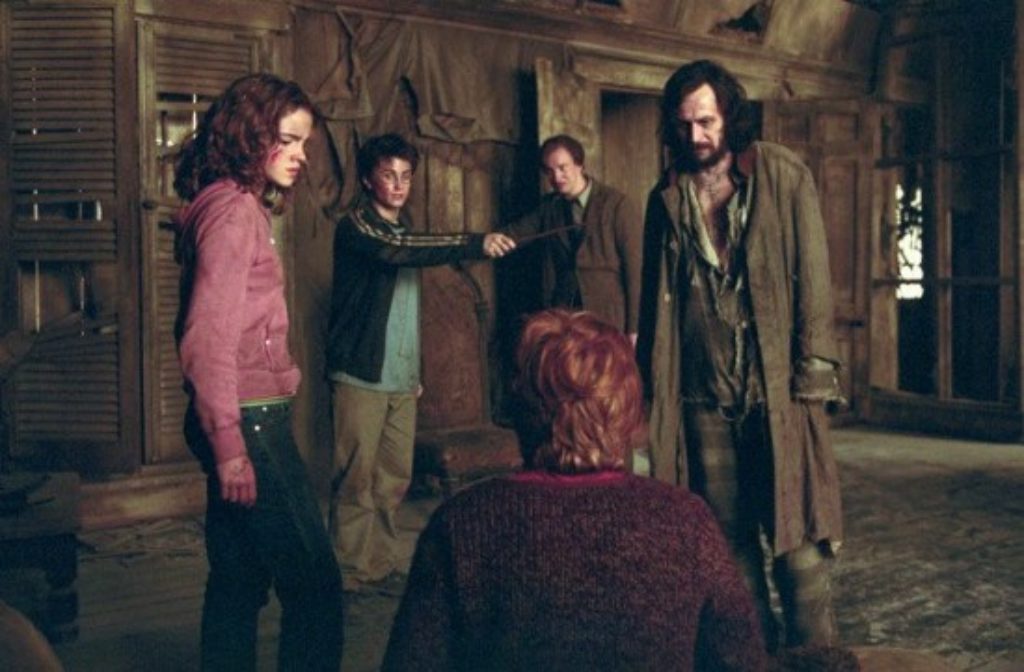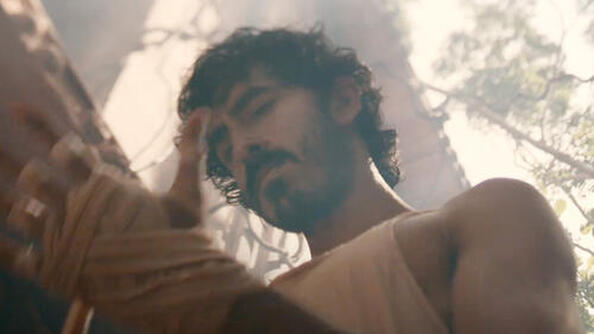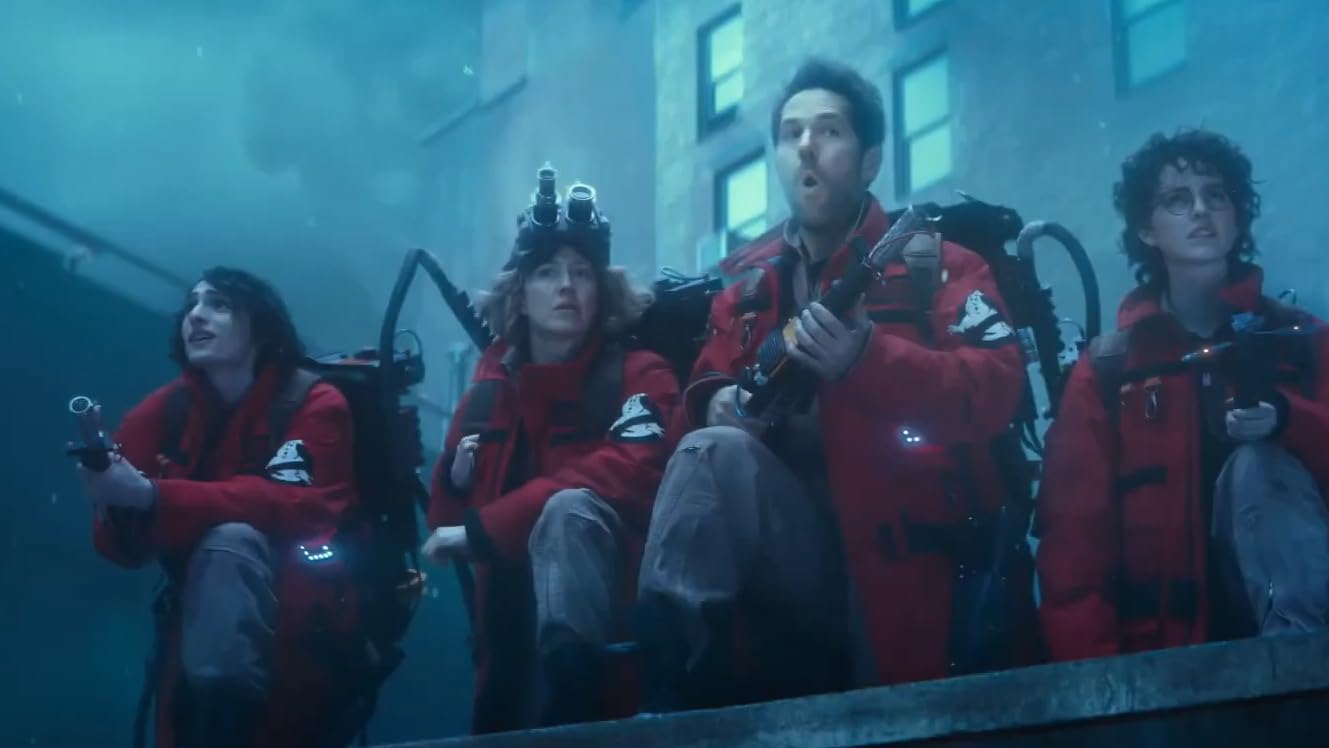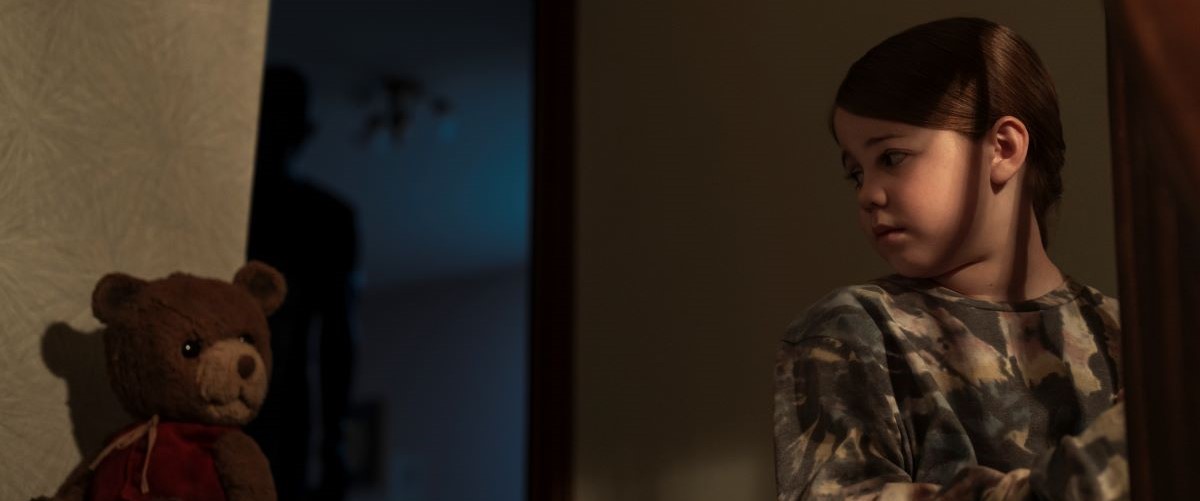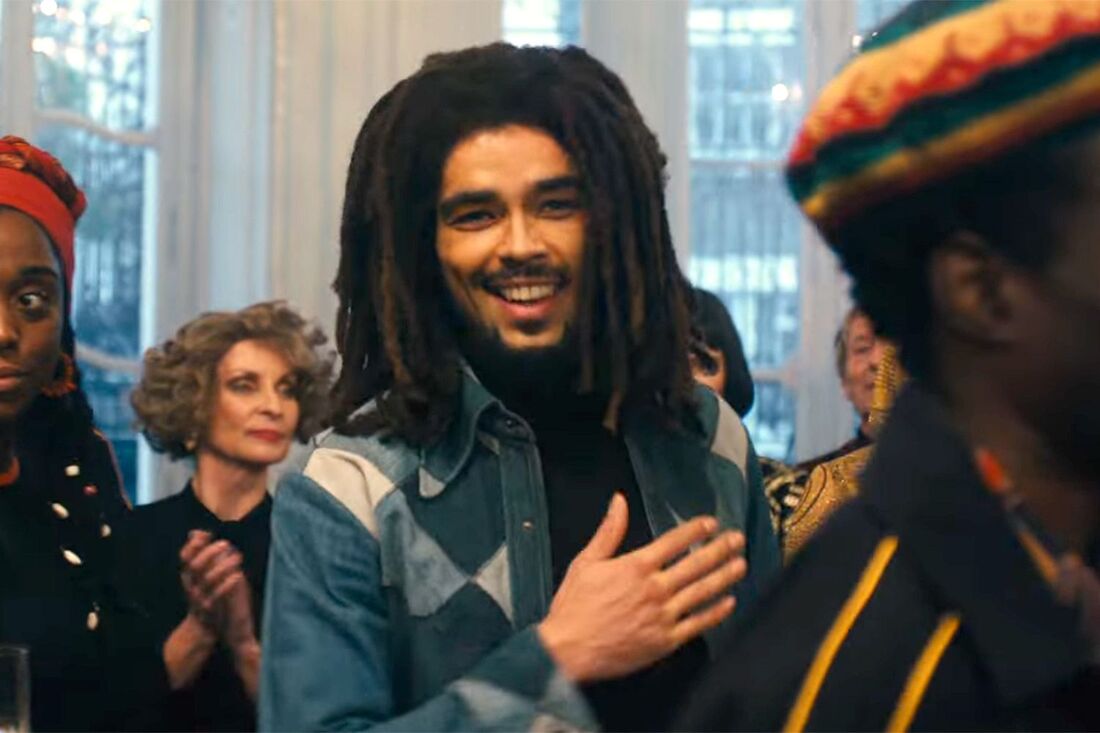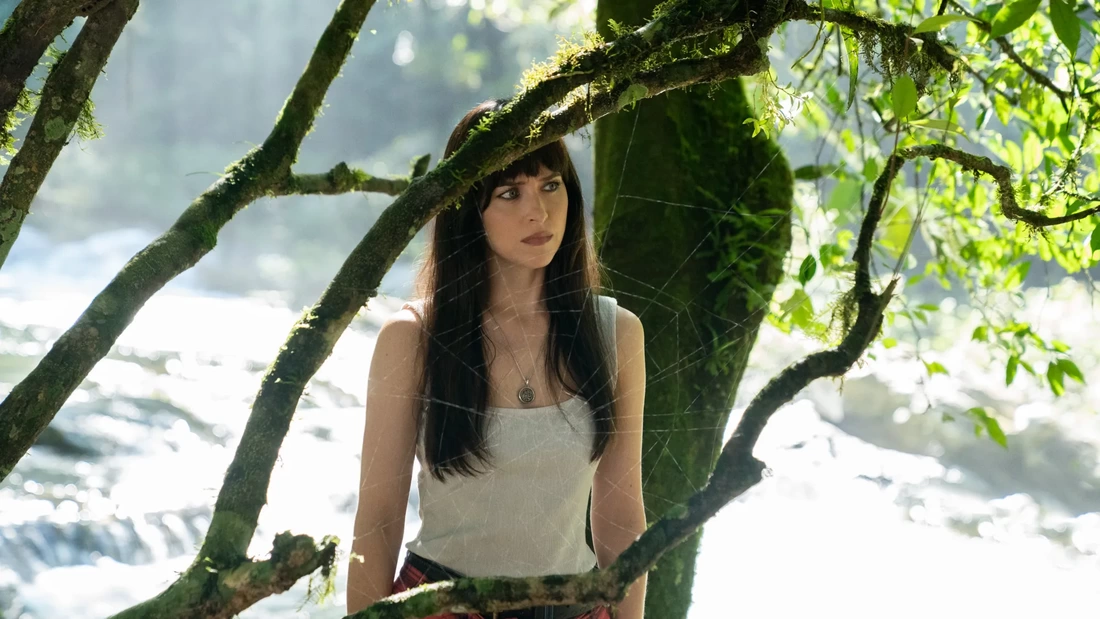|
by Philip Price Director: Wes Ball Starring: Owen Teague, Freya Allan & Kevin Durand Rated: PG-13 (intense sequences of sci-fi violence/action) Runtime: 2 hours & 25 minutes In what is essentially the fourth new beginning in the ‘Planet of the Apes’ franchise and the tenth film overall, “Kingdom of the Planet of the Apes” has the difficult task of not only following up the critically acclaimed and well-liked Caesar trilogy but establishing a new cast of characters for audiences to care about and maybe more critically - to root for. The fascinating thing about this franchise in particular is that it has no one anchor, no single selling point, but it relies on each film’s ideas and themes to be the main attraction. These are blockbusters built on allegory, delivering spectacle to fulfill the experiential aspect of movie-going, but largely crafted for the conversations that will take place afterward. In director Wes Ball's (“The Maze Runner” trilogy) re-boot each of these factors is in place to meet the aforementioned requirements of both entertainment value and parable-like storytelling, but much like with the previous two Matt Reeves films (my hot take regarding the Caesar trilogy is that Rupert Wyatt's film is the best of them) these frameworks for what these films intend to do and be end up mostly being only that: a structure. In ‘Kingdom’ specifically, the themes themselves are such repeats of ideas and concepts this franchise has touched upon before that it almost feels the series is becoming that of which it is analyzing a la the cyclical nature of society - the triumphs and failures destined to collide with the systems put in place to try and form some type of order no matter the dominant species. Further, the center of this new series of films will seem to hang on the leadership and development spurned by Noa (Owen Teague) as well as the actions and perseverance of Mae AKA Nova (Freya Allan). While the film opens with the funeral of Caesar from the previous trilogy, we are quickly ushered many generations down the road where apes have dispersed into different clans while humans are sparse and have seemingly been reduced to our Neanderthal beginnings. Noa's tribe appears to mirror that of the culture of many Native American tribes, emphasizing harmony with nature and fellow apes, instilling a social structure with rites of passage, and protocols for nurturing and developing individual roles while showing immense respect for the elders of the clan. In the opening sequence, Noa along with friends Soona (Lydia Peckham) and Anaya (Travis Jeffery) are preparing for a coming-of-age ceremony by each collecting an eagle egg. The point being, Noa's very tribalistic clan is inherently different than the gorillas he encounters later after realizing a human who turns out to be Allan's Mae has followed him and his friends back to their village. These gorillas upon horseback looking for this human carry weapons that expel electricity and wear masks to conceal who they are (always a clear sign of some deep-seeded humiliation). Upon locating Noa's village, this band of gorillas burn it to the ground in hopes of forcing Mae out of hiding, but all Noa sees is the devastation to his livelihood and the great loss he suffers. It is fundamental to the story that we learn Noa's father, Koro (Neil Sandilands), is a "master of birds" which is something Noa's tribe deeply cherishes and both a title and skill that he has not inherited. Ball's film and Josh Friedman's (“Avatar: The Way of Water”) screenplay provide this framework (there's that word again) for Noa's progression from simply proving himself to finding his purpose, which would appear to be the plight of the film, the main character's arc even - quickly becomes the least interesting thing about it. This more focused, almost character study-like approach is a refreshing starting point considering the majority of the ‘Apes’ films tend to center their attention around the vast, world and/or civilization-ending stakes at the heart of each one. And ‘Kingdom’ is different considering we know this is not the beginning of the end but the beginning of thousands of more years of evolution for these ape civilizations. Of course, a story needs conflict of some kind and Noa's internal struggle to live up to his father's expectations is not going to be enough for a $160 million major studio summer tentpole and thus the bigger dissension comes into play as do the bigger themes around religion, race, corruption, and of course ... war. “Kingdom of the Planet of the Apes” quickly transitions into a man (or ape) on-the-run style thriller as Noa along with his newly found Orangutan friend Raka (Peter Macon) - a true stand-out bound to be an audience favorite - and Mae must stay ahead of the raiders on horseback who are after them because of their belief Mae is the key to unlocking an old human vault at the site where they have settled where they have also taken the surviving members of Noa's clan. The seeds of the film’s biggest themes are planted through Raka's dedication to the philosophies of Caesar and his disdain for how this growing band of chimpanzees and gorillas are beginning to twist said teachings and values for their purposes and justifications ... you see where this is going. And though we've visited such themes not only in this franchise before, but countless times throughout our history and within the history of the arts it is fascinating how the examination of behavioral patterns always is. As Noa and Mae are ultimately captured and taken to this settlement led by the self-proclaimed king, Proximus Caesar (Kevin Durand), the distinction between the noble and the egotistical becomes less and less evident with both sides' objectives becoming less and less defined by the never so clear parameters of good and bad. The ‘Planet of the Apes’ films are a movie series of very notable "moments" whether it’s in the early film's twist endings or when Andy Serkis' Caesar spoke for the first time, it is in these small moments that we find indicators of massive shifts in how the world could/will change moving forward. ‘Kingdom’ features a nice kind of inverse on hearing Caesar speak for the first time and these moments featuring Allan's character both assessing and coming to better understand the extent of what the world around her has become are extremely layered in hindsight - no doubt adding even more depth on repeat viewings, but it is the reaction and comprehension of the apes in ‘Kingdom’ that signal the bigger understandings of perception and cultural shifts that are most impactful. Whether this is in Noa's combined emotions of astoundment and depression upon realizing a certain character's deception or when Noa, Soona and Anaya come to understand just how advanced humans once were after breaking into the aforementioned vault only to realize the humans wanted the same for different reasons is something else; truly the filmmaking, performance, and storytelling pinnacle of this particular odyssey. What the execution of these scenes is working in service of is admirable, especially considering that execution includes gorillas riding horses and electrocuting enemies in sweeping action scenes within a movie heavy on political allegory, but while these films seemingly purport to have the best of both worlds the allegory and allusions never feel - at least in the Reeves films and this one - as if they reach a level high enough to transcend the action/genre elements into something akin to genuine enlightenment. One might say the quality and merging of the ape animation with that of the natural settings at this stage of the game is enough to serve as true enlightenment and I wouldn't necessarily argue the point - it's breathtaking on the big screen - but while this depiction of Proximus as a character who yearns for knowledge from the past to conduct the future, who takes lessons and warnings from a human in William H. Macy's Trevathan, and who is positioned as the ultimate antagonist but is more complicated than Noa gives him credit for the screenplay itself doesn't give these facets their due diligence despite closing in on the two and a half hour mark. The fact Proximus doesn't appear until nearly an hour and a half into the film is an inherent flaw, but that this character then becomes the axis on which the majority of the film's themes turn only makes said flaw more obvious. Yes, the concluding, triumphant moment featuring Noa is just that and the final minutes with the humans intrigue viewers with where the franchise might go from here, but as far as continuing to carve out the details of the ancient stories between Caesar's birth and George Taylor's arrival ‘Kingdom’ could certainly be more mythic and memorable.
0 Comments
by Julian Spivey Last year I embarked on a movie challenge in hopes of seeing some films I’ve never seen and more importantly opening myself up to some kinds of films I likely would never see. The premise is that you have 12 months to watch 12 movies recommended by 12 friends. I don’t often participate in such social media challenges but being a movie buff, I felt this might be an interesting way to get out of my comfort zone a bit when it comes to watching movies. Like in 2023, I have some movies on the list that I’ve always meant to get around to watching but haven’t – most notably the 1962 classic “To Kill a Mockingbird,” which I think I saw the first half of in school but was absent on the day it finished. And there’s some stuff I probably never would’ve gotten around to like Andrzej Wajda’s 1958 Polish film “Ashes and Diamonds.” As I did last year I will write about my thoughts and feelings on each of these films after I have viewed them. Here are the 12 movies recommended to me and the months I’ve assigned myself to watch them: January: “The Wonder” (2022) February: “To Kill a Mockingbird” (1962) March: “Dreamgirls” (2006) April: “Harry Potter and the Prisoner of Azkaban” (2004) May: “21 Jump Street” (2012) June: “Mamma Mia” (2008) July: “City of Angels” (1998) August: “Fried Green Tomatoes” (1991) September: “Ashes and Diamonds” (1958) October: “Clue” (1985) November: “The Intouchables” (2011) December: “The Agony and the Ecstasy” (1965) My May movie recommendation is one that some people might be a little surprised that I’ve never seen before, Phil Lord and Christopher Miller’s 2012 buddy cop action/comedy “21 Jump Street.” My friend Brittany actually recommended the sequel “22 Jump Street” to me but nicely allowed me to switch to the first film so I wouldn’t have to watch them out of order – something I did with last month’s film from the ‘Harry Potter’ series. I’ve never really been one for crude comedies – though I do love the Greg Mottola, Seth Rogen, Evan Goldberg collaboration that was 2007’s “Superbad” – so I just never felt the need to rush out and see “21 Jump Street,” especially having never seen its inspiration – the Fox drama series of the same name that aired from 1987-1991 and gave Johnny Depp his big break. “21 Jump Street” stars Jonah Hill, also in “Superbad,” and Channing Tatum as rookie cops who had gone to the same high school and were the exact opposite of each other. Tatum was the cool jock. Hill the nerd. When the two, who became buddies at the police academy when they realize they each have a strength that can help the other become a cop, get into some trouble after their first arrest goes wrong they’re transferred to the 21 Jump Street unit, headed up by a hilarious Ice Cube, in which they’re to use their young faces to infiltrate a local high school’s drug ring, led by Dave Franco who seemingly plays the same character in every role he’s in (I wonder how that’s working out for him at 38?). I enjoyed the cameos from some of the “21 Jump Street” cameos, which I won’t spoil if you’re like me and have let a dozen years go by without seeing this. One of my favorite scenes was Nick Offerman’s lone one. I wish he had stuck around for more but I guess after the leads get transferred there’s not much use for him. Also, this is a criminal under-usage of Jake Johnson. I felt like his principal character could’ve had a more important role. I found Rob Riggle funny in this which is somewhat of a surprise for me as one who’s often annoyed by him. My worry going in was that “21 Jump Street” would be too stupid for me. It wasn’t. It’s obviously not going to be a smartly written satire but it kept me entertained and laughing mostly throughout. If you want to be entertained for an hour and 49 minutes there are certainly worse ways to spend your time. That being said, “21 Jump Street” isn’t something I’ve ever really going to need to see again. It’s one of those solid, I don’t regret watching it but I don’t feel like it’s anything more than popcorn entertainment. I’m sure I’ll get around to watching “22 Jump Street” as initially recommended but I also don’t feel the need to jump right back into this world anytime soon. by Philip Price Director: David Leitch Starring: Ryan Gosling, Emily Blunt & Aaron Taylor-Johnson Rated: PG-13 (action and violence, drug content & some strong language) Runtime: 2 hours & 6 minutes Not to put anyone off “The Fall Guy,” but it does feature massive spoilers for a 33-year-old movie titled “Thelma & Louise.” Warning aside, it is the film’s appreciation, admiration and recognition of such films as that Ridley Scott crime romp along with countless others like “First Blood,” the ‘Fast’ franchise and any number of Julia Roberts romantic comedies that make stuntman-turned-filmmaker David Leitch's latest so endearing to avid movie fans like myself. The flip side of that coin is that “The Fall Guy” is also very much one of those types of movies, whether it be an over-the-top action adventure flick or a bombastic rom-com, for modern audiences now breaking free of the serialized blockbusters we’ve become accustomed to over the last generation and who are now being ingratiated into true summer blockbuster territory. It may spoil “Thelma & Louise,” but what it really wants is for you to either seek these movies out or re-visit them in hopes of discovering or renewing a sense of inspiration. As Ryan Gosling's Colt Seavers would say, “The Fall Guy” is very much a “thumbs up” version of this kind of moviemaking; a fun, ostentatious (in the best way) and wholly entertaining palette cleanser. What makes “The Fall Guy” even more of a return to those summer blockbusters of yesteryear beyond the somewhat novel concept (it’s partially based on the 80s TV show starring Lee Majors and Heather Thomas who both make cameos in a mid-credit scene here) is the fact the film is being sold as much if not more on its stars than its premise. Riding high off the pink nuclear fumes of last summer’s “Barbenheimer” Universal paired Emily Blunt of “Oppenheimer” with Ken himself and in many ways, this feels like a culmination of this current phase for both of these actors' careers. Gosling is THE marquee star of the moment yet upends that persona by playing a “forgettable” stuntman (brilliant!) whereas Blunt is not only game to be the love interest but very intentional about positioning her Jody Moreno as a woman at the helm of this massive production who not only has a vision and a voice but can successfully steer the ship all while working with Colt to better understand their relationship status. That relationship status is the heart of the film as Colt seeks to atone for past mistakes but the action he's chasing outside his professional life doesn't supplant the film's main objective: blowing things up and beating the shit out of people. If Gosling and Blunt feel a little senior for such roles it’s because they are, but the absolutely effortless and electric chemistry between the two of them in addition to the overall goofy tone the movie strikes outweigh any responsibility to emphasizing credibility. The film even goes to the lengths of emulating those ‘80s and ‘90s trends of launching a fan-favorite TV star into the world of movies via Hannah Waddingham’s (“Ted Lasso”) conniving producer, Gail. The most important piece of “The Fall Guy” puzzle though? That would be director Leitch who worked both as a stunt performer and stunt coordinator before crossing over to filmmaker in 2014 with his longtime collaborator Chad Stahelski on the first ‘John Wick’ film. While only having produced the three ‘Wick’ sequels, in the decade since that first film Leitch has directed two original action films and two massive sequels for pre-established franchises. With “The Fall Guy,” Leitch is very deliberately paying homage to as well as elevating the craft of the stuntman and the critical role they play in the making of large-scale Hollywood productions. The absence of a category devoted to doing just that at the Academy Awards has long been a hot topic with Leitch and screenwriter Drew Pearce (“Hobbs & Shaw”) acknowledging as much in the context of the film. While this is very clearly a film close to Leitch’s heart and carries a message that hopefully extends far past this moment it is equally as impressive that Leitch doesn’t lose sight of the small moments necessary to make the film engaging and memorable within that overarching goal. And sure, the aforementioned chemistry between the leads does a fair amount of heavy lifting, but Leitch and co. also have enough filmmaking tricks and storytelling ticks to keep us wrapped up in the drama and intrigue of it all. Colt is a former stuntman who experienced a career-ending accident on the set of his last collaboration with worldwide superstar Tom Ryder (Aaron Taylor-Johnson doing his best Matthew McConaughey) during which he’d also begun courting a camera operator AKA Blunt’s Jody. The two had hit it off and were seeing one another, but after the accident, Colt disappeared from Hollywood, cut ties with everyone from his old life, and started working as a valet at a local restaurant. Seclusion only lasts so long though as Waddingham’s Gail comes calling several years later requesting Colt return to what he does best as Jody has moved up the ladder and is getting her shot at directing a big summer tentpole (“It’s high noon at the edge of the universe.”) with some major stunts (that will be shown at Comic-Con, Hall H, it's a big deal.). Colt jumps (and barrel rolls, and gets set on fire, and...) at the opportunity to reconnect and potentially rekindle what he and Jody had, but upon his arrival discovers all is not as it seems. Ryder is AWOL and Gail has essentially recruited Colt to find him and bring him back to set before the studio cancels the project and Jody loses her dream job. To set the tone (and your expectations) this is a film largely set against variations on and different arrangements of KISS's 1979 classic "I Was Made For Lovin' You". This is fitting as the mission statement and core values of arena rock are one thousand percent in line with that of what “The Fall Guy” intends to accomplish. The hair may not be as big as some of the staples of that genre, but the stunts are as big as the guitars and the stars are as sweeping as the big, melodic choruses. And like arena rock, one might question whether or not the film is more concerned with spectacle and mass appeal over artistic merit and the answer is obvious, "of course it is!" That said, The Fall Guy is also a movie that loves movies so the difference between the interests of the "middlebrow" populace versus critics and cinephiles is a perfectly blurred line in this case. Yes, The Fall Guy is first and foremost about dramatic production, but it also understands that designing itself for a mass audience doesn't mean it has to sacrifice the nuances specifically thrown in for movie lovers whom the cast and crew relate to. Whether it be in something as obvious as Winston Duke's stunt coordinator character whose relationship with Colt is based purely around movie quotes - The Fugitive moment is pure bliss - or simpler choices such as having Colt and Jody discuss their relationship via metaphor while on set through speakers in front of the full cast and crew rather than taking the easy way out for such a scenario. Finding ways to make the mundane creatively inspired is what movies do best when they're at their best and whether it be through little (literal) unicorn touches, the way certain sequences are cut - namely the hotel card sequence - or the split screen scene, Leitch is at the very least always pushing to find more innovative ways of conveying necessary but nt always exciting moments. There is also a running joke about Colt trying to obtain a cup of coffee that I wish went on longer and had a better payoff, but hey, the set list can't be all hits. To speak of misses within “The Fall Guy” though, is to note there truly are not many. Sure, the "conflict" between Gosling and Blunt's characters begins to feel slightly redundant after we haven't made much progress after the first half hour, but the pacing almost immediately corrects itself as soon as such thoughts begin to surface. No, there isn't a ton of characterization as we are meant to understand who these individuals are from the word go: Colt exudes gritty charm and has messy, dirty blonde hair while Jody wears perfectly tailored jumpers that exude "cute as a button" that also bet on others underestimating her based on these looks. And yes, the plotting gets a little convoluted going into the third act when Taylor-Johnson's Ryder (pay attention to the ‘Funny People’-level fake posters in his trailer btw) begins to figure in more prominently, but there is a sequence at the end of the second act that largely embodies everything, good and bad, about “The Fall Guy.” In the scene, Gosling's Colt has been captured by a set of goons looking to retrieve a phone that contains an incriminating video and while there are some puzzles to be put together around the master plan at play (to be fair, this movie could either fall completely apart or surprise me with how well it holds up on a second viewing), but amid this interrogation and seemingly impending doom for our hero he pulls out a stunt so badass you almost don't care if the set-up or execution strains credibility. It doesn't hurt that the series of shots following this stunt pay off a Miami Vice joke that was set up exceptionally early in the film. The biggest compliment one can pay “The Fall Guy” is that with all it has going on and all it is attempting to do the finished product feels so assured and its appeal so effortless that the substance is inherently baked into the style. This is a world that Leitch has lived in and a story with characters who have no doubt made up his world for the majority of his life - it would be strange if this didn't feel as much for him and his people as it is the masses; the beautiful thing is that it easily accomplishes both. When a film features needle drops from The Darkness and Phil Collins there's no mistaking what perception the film is embracing and that its artistic merit will undoubtedly be questioned yet “The Fall Guy” is kind of explicitly challenging all walks of life - high culture, working class, middle class - to try and not have fun with the show it's putting on...much like arena rock; balance is key, but indulgences are necessary. “The Fall Guy” also ends with a fake trailer straight out of “Tropic Thunder” followed by a theme song sung by Blake Shelton over the credits, which, more or less renders the "dazzling yet empty" criticism a moot one. by Philip Price Director: Alex Garland Starring: Kirsten Dunst, Wagner Moura & Cailee Spaeny Rated: R (strong violent content, bloody/disturbing images & language) Runtime: 1 hour & 49 minutes Not all, of course, but the majority of politicians typically turn out to be boring, quite predictable people who - in place of actual personality - feel the need to pervert even the simplest of exchanges or interactions as they often mistake complicated for interesting. Photographers, writers and other members of the press, the more creatively inclined types, inherently stand to be more individualistic or at least more occupied with ideas than they are with self-preservation or importance. To clarify, I'm not discounting the ego numerous members of the media possess, but am more drawing attention to the difference between those who believe they naturally possess a sense of charismatic authority and those who seek it above all else to prove to the world they aren't who they know they truly are. And knowing who you truly are is key to knowing where you'll land on Alex Garland's “Civil War.” Despite writer/director Garland's latest not explicitly making any type of political allegiances where his ideologies occupy are made more than clear in the text. By making his protagonists objective photojournalists who "record so others can ask questions" while making the antagonist a fascist President who has dismantled the FBI it's pretty explicit where Garland tends to fall even as the film’s allegiances end up not mattering as the writer/director and the movie itself are more interested and fascinated by what brings individuals to their loyalty in their beliefs in the first place; why they believe, not simply that they do. Drawing understanding from under the surface and not just from it gives the frame of mind of these photojournalists a more particular outline rather than being reduced only to the stereotype their label provides. Much of it goes back to Tommy Lee Jones in “Men in Black” when he said, "A person is smart. People are dumb, panicky dangerous animals, and you know it." While the context of the title and timing of the release would lead audiences to expect members of two staunch, opposing sides battling things out on the street in a modern fashion intercut with talking heads in suits discussing strategy and morality in board rooms the truth of the matter is, the bullet points for siding with one political party over another go out the window once actual bullets begin flying. In essence, it no longer matters what we're fighting about but instead in the scenario presented society has reached such a boiling point that the people's mentality has officially overpowered the independent rationale. As with any worthwhile film, each audience member will apply their personal feelings or, in this case, politics to what they are consuming and that is one of the only guarantees regarding reactions to “Civil War.” By upending those expectations and making this something of a science fiction/road trip movie, viewers are required to answer the exact kinds of questions Garland seems to have gone into this project asking himself. There are all sorts of reasons people come to hold certain beliefs, but to write them off as good or bad based solely on some of those things doesn't always correlate. Sometimes they do, and sometimes things are black and white, but each person deserves the benefit of the doubt. Attempting to fill in these gaps by taking a journey across a dystopian future America presents contradictions both visually (a crashed helicopter in front of a JCPenney, a dead soldier in the middle of a Christmas display) and comprehensively (Texas and California?), but the more we begin to dabble in and attempt to understand why things are as they have become rather than being explicitly told why things are the way they are the more we realize what is being fought over isn't the point, but rather it is more about what we're losing in the process. My immediate thought when leaving the theater after experiencing “Civil War” (and it is very much that, an experience) was that I don’t know that I want to watch it again, but I absolutely would. Aside from all of the philosophizing and contemplating taking place within and around the film, it is also an expertly crafted, paced and impeccably performed (think)piece of entertainment. If Jesse Plemons were to win Best Supporting Actor next year, I wouldn't doubt that choice for a second despite his limited screen time; the impact is unreal. Stylistically, the weight and symbolism added to shots of sprinklers considering the film's opening moments only enhance the questions and ideas around what I might have missed on this initial viewing. Technically, the film was a marvel in IMAX with the music supervisor especially deserving praise for choices that both elevate and encapsulate the tone and emotion Garland sought to elicit from his viewers. This isn't a film where one can leave the politics at the door even if some will feel that is exactly what Garland did. Despite feeling amorphous in its ideals, the central theme is as clear and prescient as ever in that right and wrong become irrelevant when the world is crumbling around you. by Julian Spivey Last year I embarked on a movie challenge in hopes of seeing some films I’ve never seen and more importantly opening myself up to some kinds of films I likely would never see. The premise is that you have 12 months to watch 12 movies recommended by 12 friends. I don’t often participate in such social media challenges but being a movie buff, I felt this might be an interesting way to get out of my comfort zone a bit when it comes to watching movies. Like in 2023, I have some movies on the list that I’ve always meant to get around to watching but haven’t – most notably the 1962 classic “To Kill a Mockingbird,” which I think I saw the first half of in school but was absent on the day it finished. And there’s some stuff I probably never would’ve gotten around to like Andrzej Wajda’s 1958 Polish film “Ashes and Diamonds.” As I did last year I will write about my thoughts and feelings on each of these films after I have viewed them. Here are the 12 movies recommended to me and the months I’ve assigned myself to watch them: January: “The Wonder” (2022) February: “To Kill a Mockingbird” (1962) March: “Dreamgirls” (2006) April: “Harry Potter and the Prisoner of Azkaban” (2004) May: “21 Jump Street” (2012) June: “Mamma Mia” (2008) July: “City of Angels” (1998) August: “Fried Green Tomatoes” (1991) September: “Ashes and Diamonds” (1958) October: “Clue” (1985) November: “The Intouchables” (2011) December: “The Agony and the Ecstasy” (1965) Admittedly, my April movie recommendation is one that I was dreading, despite it coming from my wife Aprille. She, like much of the world, is a big Harry Potter fan. I’ve managed to avoid the series thus far, which is fairly impressive given my wife and I have been together for nearly two decades. Harry Potter had two things going against it for me. I’ve never been a huge fan of fantasy films. My idea of a good fantasy film is ghost baseball players in an Iowa cornfield. And I’ve also never had an interest in serialized film series. I don’t want to get involved with an eight-movie series. I never thought the series would be bad – they’re fairly well-reviewed by critics. I just never had an interest. But part of this exercise that I’m in my second year of doing was opening myself up to not just films I hadn’t seen but some that were out of my comfort zone. Another hesitation I had with this series specifically is Aprille wanted me to watch her favorite Harry Potter film, which is 2004’s “Harry Potter and the Prisoner of Azkaban.” This meant my first foray into the world of Hogwarts would be the third film. Though I will say there’s so much Harry Potter within the pop culture landscape that I pretty much knew the main characters without any previous knowledge of the series. “Harry Potter and the Prisoner of Azkaban” mostly revolves around an escaped prisoner Sirius Black, played by Gary Oldman, and his relationship with Harry’s deceased parents. It’s an interesting plot but I feel like one that doesn’t get enough focus in the film. The film is so dense with the world of Hogwarts that the movie feels more like world-building than the actual Sirius Black/Harry Potter plot itself. I felt like the movie needed more Sirius Black, more Remus Lupin (David Thewlis) and less everything else going on. As directed by Alfonso Cuaron in his only Harry Potter film, it’s a beautiful-looking film. It’s funny to me that Cuaron went from 2001’s “Y tu mama tambien,” a film about an erotic tryst between two young men and a slightly older woman, to what amounts to a children’s film. That was kind of a wild choice by Warner Bros. Pictures. But from what I understand this is nearly universally considered the best of the series so it worked out. I finished the film basically as indifferent to the Harry Potter series as I was going into it. It certainly wasn’t a bad film. It just didn’t do anything for me as a viewer. by Philip Price Director: Dev Patel Starring: Dev Patel, Sharlto Copley & Pitobash Rated: R (strong bloody violence, language, sexual content/nudity & drug use) Runtime: 2 hours & 1 minute Anger may not quiet the soul and an eye for an eye might eventually make the whole world blind, but corruption must be reckoned with in some fashion and Dev Patel makes it satisfying as hell in his directorial debut, “Monkey Man.” While the story of revenge is the most common kind of story, especially in the action/thriller genre, Patel elevates the material by making that aforementioned anger more deeply felt and the context hyper-personal as well as lathering the execution in every influence the writer/director/star has made note of since directing became an ambition. Patel, the director, has a real penchant for framing his shots around an unexpected primary focal point that communicates plot elements visually while simultaneously building the world - not an easy task when considering you're doing so from the ground up. He does this in a somewhat brash fashion backed by either a heavy soundtrack or Jed Kurzel's Harold Faltermeyer-esque score that culminates in a style desperately trying to carve itself out of those influences. Whether it was my experience as a first-time viewer or Patel realizing his intention through experimentation, by the end of the film the extreme from-the-hip angles coupled with the extreme close-ups of particularly gritty moments in hand-to-hand combat make for a very ecstatic and unrestrained tone that can't help but to be felt if not necessarily viewed as singular. But also, as a director, if you don’t have women cheer for you when you take off your shirt onscreen what are you even doing? As one of three credited screenwriters, Patel - as stated - isn't reinventing the wheel here, but what is important is the film has an angle; a specific point of view from which it is being told and most key is that it latches on thematically to a small but critical facet in the revenge saga: drive. Patel and Co. use the genre elements and story staples to structure the film accordingly, but mostly this is a movie about a guy so driven by his anger and rage that he will stop at nothing to avenge a brutal and frankly, mortifying, moment from his past. Yeah, the screenplay may have some glaring missteps when analyzed from a critical perspective, but it would seem this is due more to who had the say on the final edit rather than artistic narrative choices. Still, things like having our hero feel the need to say one cool thing before he kills the bad guy and not echoing the single-kick knockout from an earlier moment in the film in the final fight feel very much like rookie oversights. As for Patel the performer, this is played far more akin to something like Batman than he is John Wick (despite the in-movie reference) as this character referred to simply as "Kid" is not slick, he doesn’t have his shit together, and maybe most importantly - we can’t trust that he’ll prevail, but we root for him regardless. This is a largely wordless performance as well making Patel's performance even more intentional given all of the other roles he played in this production as his physical presence when matched with the soundtrack mix in certain scenes and sequences is beyond complimentary. The bathroom fight in particular is one of the coolest things I’ve seen put together this year and is arguably on par with the ‘M:I – Fallout’ bathroom fight in terms of pure energy and vibe. Furthermore, Patel chooses such hard-hitting music (including Ben Kim and Swedish House Mafia) to underscore every action sequence up until the climax in which we are served only acoustic guitar under the most chaotic sequence makes the design and the purpose all the more evident in the best way possible. by Philip Price Ghostbusters: Frozen Empire “Ghostbusters: Frozen Empire” is very much the third ‘Ghostbusters’ movie that would have been made in 1992 had they completed the trilogy as they probably should have. Instead, the 2024 version of this serialized sequel comes with about eight unnecessary characters which inevitably leads to two too many subplots and not enough bandwidth for any individual character to matter or enough time for any of the "super secret underground ghost busting stuff" to genuinely resonate. Kumail Nanjiani really makes the most of his time though, especially in his scene with Bill Murray. I could have watched 10 more minutes of that. Godzilla x Kong: The New Empire To follow up on my previous review, this movie has King Kong ripping a mutant wolf in half and then bathing in its green blood. What more could you ask for? Other notable observations/questions: Kong beats up other giant gorillas with a baby orangutan. Real Joe Jackson vibes. Godzilla takes a nap in the coliseum and destroys the ancient pyramids with zero care or concern. What a boss. Dan Stevens has great hair. Also, I’m curious how many folks now believe they saw Bradley Cooper in “Godzilla × Kong: The New Empire.” What’s the air quality like in Hollow Earth? As a seasoned podcaster/vlogger Bernie knows he doesn’t have to provide live narration, right? A bridge made from a backbone is a sick visual idea. Top-tier Wingard. I do wish there were more moments to emphasize the scale though a la the shot of the Scar King’s tooth flying into the street and it being bigger than a car. The music supervisor absolutely killed it. Ultimately, this would be a really fun two-episode story arc of a Saturday morning cartoon that has one too many subplots featuring irrelevant humans delivering unnecessary exposition to justify why we're all here in the first place - which isn't even that necessary. The way Kong celebrated that win like he just scored a touchdown was quite possibly peak cinema. by Philip Price Director: Jeff Wadlow Starring: DeWanda Wise, Tom Payne & Betty Buckley Rated: PG-13 (some violent content, drug material & language) Runtime: 1 hour & 44 minutes It needs to be said up front that “Imaginary” is not really a good horror film and that Jeff Wadlow (“Truth or Dare,” “Fantasy Island”) may not be a good filmmaker. He may be a great guy and a pleasure to work with, but a good director? Doesn't seem to be the case. I say this not to be rude and not because half an hour into his latest Blumhouse release the only other people in my theater - a couple in their early to mid-twenties - walked out, but because “Imaginary” functions first as a very obviously constructed movie. That is to say, it makes no qualms about existing in an artificial world where dialogue is just that and the only purpose of sets are in service to the story and not necessarily to implant us into the world of these characters. This is fine enough for some genres and maybe even more forgivable in the horror genre as the audience is aware of the function these characters and their heightened situations are in fact in service of, but Wadlow either doesn't know how to or is unaware he needs to sustain a consistent tone throughout for as soon as Betty Buckley's kooky old lady character enters the picture it's as if the fourth wall breaks and it is made strikingly clear the difference in the contrivances that make a movie and how the honesty of a performance can make or break a viewer's investment. The screenplay from Wadlow, Greg Erb and Jason Oremland does that thing where a movie does what it thinks a movie is supposed to do but can't tap into why genre movies like the one they're attempting to make work. Horror movies come to be remembered for their scares (of which “Imaginary” has very few) but first leave their imprint on audiences because of the character's journey and the mental or physical exhaustion they are put through on the part of the antagonist. This is where “Imaginary” has potential as I'm sure Wadlow, Erb and Oremland (or at least one of them) intended for the story to be some large allegory for childhood suffering and derangement and certainly the abandonment many face in many forms yet despite the ambition nothing is propelling the narrative forward. What we are instead served is a string of scenarios in which another childhood icon is ruined thanks to a scary movie. Fortunately for teddy bears, the movie’s Chauncey isn't kitschy enough to be camp and Wadlow's moviemaking isn't good enough to render the themes authentic meaning we land somewhere in the middle with a movie that operates on earnest horror tropes but has none of the levels or layers to make it remotely memorable. What ultimately ends up pushing the movie more to the positive side for me (and I feel this will be very unique to each person) is the final act of the film venturing into the “Kingdom of our Imagination” that looks like something out of an MC Escher painting and is just wild enough to have rendered me intrigued. I don't know if I understood all the rules or knew what was going on at every turn. Still, I appreciate its practicality in design (Chauncey at one point morphs into something that looks like Rahzar from “Teenage Mutant Ninja Turtles II: The Secret of the Ooze”) and its peculiarities throughout. In addition, Pyper Braun gives a legitimately tortured child performance that hedges the movie in that direction of authenticity before it is immediately upended by a perfectly campy line about ventriloquism which just perfectly encapsulates both everything funny about “Imaginary” and also why it doesn't work at all. I love a scene when an old person or historian explains the mythology of an antagonist or evil entity though, and this movie has two solid examples of such. by Philip Price Director: Reinaldo Marcus Green Starring: Kingsley Ben-Adir, Lashana Lynch & James Norton Rated: PG-13 (marijuana use & smoking, some violence and brief strong language) Runtime: 1 hour & 47 minutes While it would be easy to say that, if nothing else, “Bob Marley: One Love” works as an introduction to Marley, his music and the context from which it came for young or new fans even that faint praise isn’t really true. We are dropped into 1976 (after no less than four text cards) as Marley’s nation of Jamaica is rampant with political upheaval. The People’s National Party and the Jamaican Labour Party fight for control of the country, but neither of these opposing sides is given distinctions by the film’s screenplay which comes from no less than four screenwriters including director Renaldo Marcus Green (“King Richard”) and Terence Winter (“The Wolf of Wall Street”). The point, of course, is that Marley’s mission was to bring these opposing political leaders together, but for audience members uninitiated in ‘70s Jamaican politics (like myself) there is very little indication of what the bullet point positions of these parties even were and worse, there are no indications as to where Marley himself fell. We understand Marley desires peace, we understand he is devout in his Rastafari faith, but there is no depth to these beliefs or desires. Further, one can feel the film skirting the penetration and profundity such insights might provide around its titular subject. The music is good, obviously, and is frankly enough to keep the Wikipedia-level story afloat if not consistently engaging, but it’s depressing that an artist whose album – the making of which is chronicled in the film - was named the best album of the 20th century by TIME magazine in 1999 doesn’t get a biopic that at least feels in tune with what that artist stood for, if not also genuinely trying to shape who he was. How this film manages to make even Lashana Lynch seem dull is beyond me and signals just how weak so many other areas of the film have to be to allow for this travesty. by Philip Price Director: S.J. Clarkson Starring: Dakota Johnson, Tahar Rahim & Sydney Sweeney Rated: PG-13 (violence/action & language) Runtime: 1 hour & 56 minutes Contrary to popular opinion, the chief issue with “Madame Web” is not how badly it's executed or how egregiously awful it is in general, but more how offensively boring it is. For what is presumably a superhero origin story this movie - which clocks in at four minutes short of two full hours - feels like little more than a first-act set-up until maybe the final 20 minutes. There are stakes, things are happening, and we're invested in the characters to the same extent we are strangers in Walmart who we hope to make it home safely, but there is nothing here to suggest any of what transpires on screen is effective at anything besides causing an existential crisis. Beyond the expected complaints of obvious plot holes (of which there are plenty) and terrible dialogue, the film’s more fascinating fumbles are that of Tahar Rahim's entire performance being voiceover and/or ADR, his choice to wear no shoes on the subway and Dakota Johnson's very Dakota Johnson ramble about how her mom died during childbirth smack dab in the middle of Emma Roberts’ baby shower. If this were simply a ‘90s-set drama about a woman who demonstrates signs of being clairvoyant in what she believes are keys to unlocking and understanding her long lost mom then this would still be a Lifetime-level movie, but it might have stood a chance at being more compelling than “Madame Web” ends up due solely to all the spider stuff this film is forced to include. There is no “Spider-Man” in this movie per se as Rahim’s Ezekiel Sims only first appeared in the comics two years before when this film is set, but outside of this character complicating both his own life, Johnson’s Cassandra Webb's life, and the lives of the other three young, future spider-women featured in this film the only main concern this antagonist made me consider was, “If this guy’s body lets out a neurotoxin would the government lady he seduced early in the film to get access to technology not yet invented in 2003 not have been dead long before he purposefully poisons her or does the toxin only come out of his hand and not any other specific orifices? Are condoms neurotoxin resistant?” Maybe that was it. The point is, Sims could have easily been written as a Max Cady-like baddie if we’re shooting for the Lifetime synergy and I would have much preferred that schlocky kind of genre storytelling (terrible ADR and all) to this waste of resources in service to nothing more than desperate market forces. |
Archives
July 2024
|

